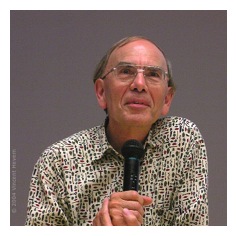
Prof. Dr. Hubert J. M. Hermans was born in Maastricht, The Netherlands on October 9, 1937, the son of Mathias (a baker) and Jeannette M. Spronck. He completed his initial schooling at the Gymnasium and, then, entered the Catholic University of Nijmegen where he studied psychology as both an undergraduate and graduate student (M.A. in 1965 and D.Psych.). He completed his doctoral thesis, Motivatie en Prestatie [Motivation and Achievement], in 1967 while working as a staff member of the Psychological Laboratory at the university. He served as a lecturer from 1972 and, in 1980, Professor of Psychology as a member of the Faculty of the Social Sciences. He taught in the Department of Clinical and Personality Psychology at Nijmegen until 2003 when he became professor emeritus.
His early work in psychology centered on his doctoral research concern--achievement motivation--and the fear of failure. Indeed, two of the tests he developed, the PMT (Prestatie-Motivatie-Test) for adults and the PMT-k (Prestatie-Motivatie-Test voor kinderen) for children, are among the instruments of clinical assessment most widely employed in Holland. However, in 1968, he was awarded a scholarly travel fellowship which allowed him to visit important academic institutions in the United States (Stanford, Harvard, and the Oregon Research Institute). This experience fundamentally altered the focus of his work to the area of personal valuation which he has pursued since the early 1970s. With his colleagues at Nijmegen, Hermans has been working extensively on understanding the self in contemporary psychological science and has developed what he terms the "Valuation and Motivation" research program to clarify how the self functions. Through these he has worked through three important notions: valuation theory, the dialogical self, and the self-confrontation method (SCM). His first two books, The Dialogical Self: Meaning as Movement (with Harry J.G. Kampen in 1993) and Self-Narratives: The Construction of Meaning in Psychotherapy (with Els Hermans-Jansens in 1995), illustrate two major thrusts of his work: establishing a basic theoretical and scientific understanding for the self and finding the clinical utility of such an understanding. His homepage provides browsers with a good sense of the notions he has been developing. Central to his understanding of the self as dialogical have been the work and thought of two figures: (1) William James who described the self as dimensional ("I-Me" including the "social self") and (2) Mikhail Bakhtin and the notion of dialogicality and multivoicedness. Beginning in the second half of the 1990s, Hermans began more explicitly to examine the nature of culture and cultural development as they pertain to an understanding of the self's functioning. He has stressed the complexity of culture and the development of hybridized cultural forms as divergent traditions meet in a world of increasing social contact. His most recent book (2004), edited with Dr. Giancarlo Dimaggio (Terzo Centro di Psicotherapia Cognitiva, Roma, Italy) is The Dialogical Self in Psychotherapy. In this work focused upon therapeutic theory and practice, Hermans and Dimaggio illustrate the ability of dialogical self theory to serve as a broad metatheoretical framework for practitioners who embrace multiple theoretical viewpoints (cognitive, constructivist, narrative, psychodynamic, psychodramatic, etc.).
In advancing the notion of the dialogical self, Hermans has been the guiding force in five international conferences [2000 (Nijmegen), 2002 (Ghent). 2004 (Warsaw), 2006 (Braga, Portugal), 2008 (Cambridge, UK)] which have permitted scholars from around the world to share data, reflections, commentaries, and critiques of the self as multivoiced (See links below). He has also served as organizer and first president of the International Society for Dialogical Science, established at the University of Nijmegen in 2002. He has two children: Matthieu and Desiree.
Sources: Edgar, K. J. (1995). Contemporary authors. Vol. 146 (pp. 200-201 ). Detroit, MI: Gale Research; Hubert Hermans (personal communication).